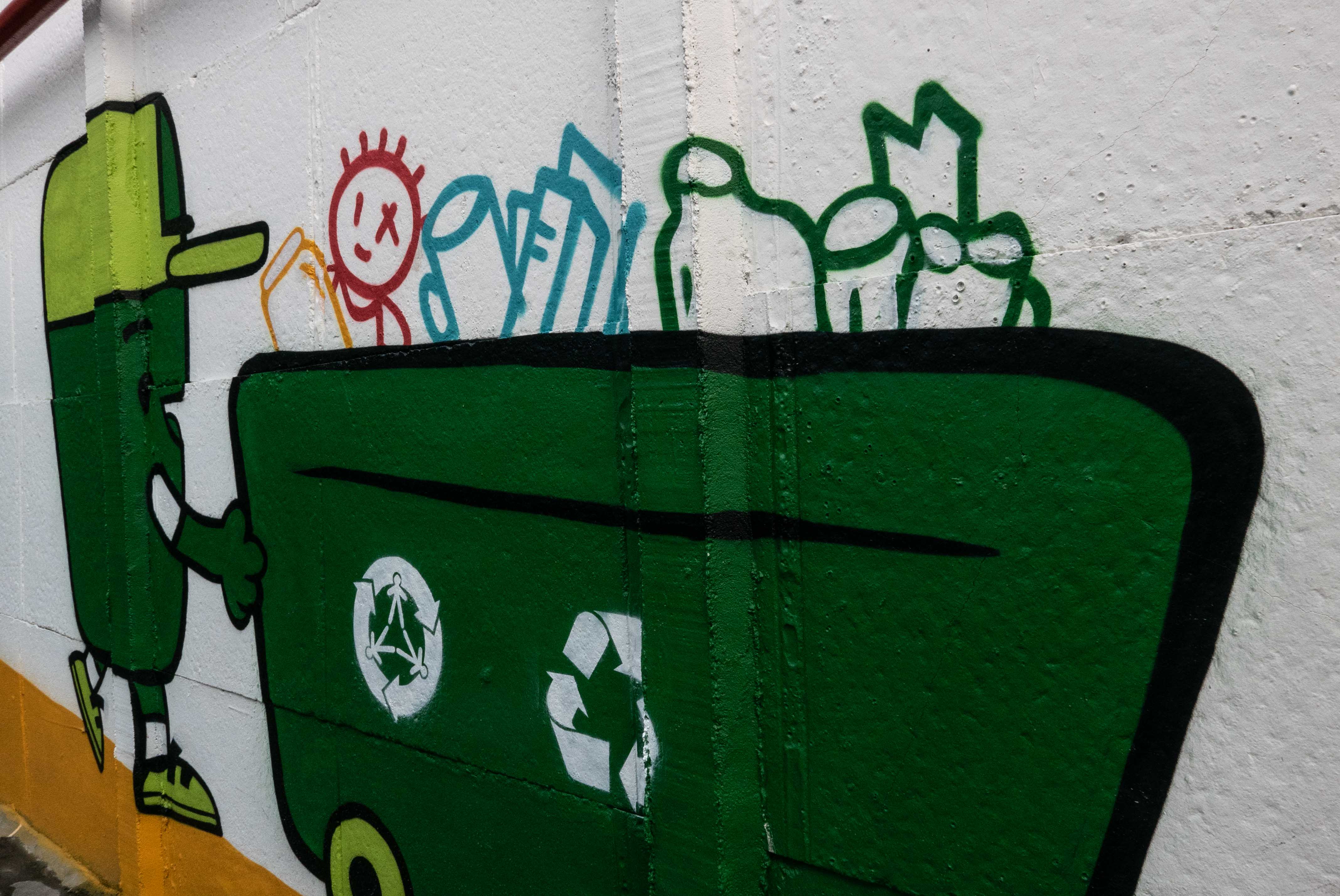
01/07/2023
Brazil can earn BRL 1 trillion with cooperativism in 2027, says OCB
Cooperativism generated 493,000 jobs in Brazil in 2021. Within this model, recycling cooperatives stand out as vital for the Circular Economy
Brazil has the capacity to have revenues of R$1 trillion with cooperativism and reach 30 million members in 2027, according to the president of the Organization of Brazilian Cooperatives (OCB), Márcio Lopes de Freitas. This represents twice the amount earned in 2021, from R$525 billion, according to the most recent directory by OCB, released in 2022. Still according to the survey, the country has 4,880 recycling cooperatives, of which 2,535 have been in the market for over 20 years, and 18.9 million members. But how should this happen and why is it important to talk about it, especially on this International Cooperativism Day?
Recycling is one of the seven Rs of Circular Economy (Rethink, Refuse, Reduce, Repurpose, Reuse, Recycle and Recover). The Solid Waste Overview, from the Brazilian Association of Public Cleaning and Special Waste Companies (Abrelpe), points out that Brazil produced 27.7 million tons of recyclable waste in 2021, mainly plastics, paper and cardboard, glass, metals and multilayer packaging. However, just over a quarter of Brazilian cities, 27% or about 1,500 municipalities, don’t even have selective waste collection, impacting the final destination of waste and the extraction of natural resources.
Officially established last year, the National Solid Waste Plan (Planares) presents ambitious goals for the next 20 years. The proposal is to recycle more than 100 thousand tons of urban solid waste per day in 2040, almost half of what is generated in the country, with recycling, composting, biodigestion, and energy recovery. This involves a great process of social and business mobilization. The OCB yearbook shows that today cooperativism is mostly represented by the participation of individuals, 87%, compared to only 13% of companies.
This army of cooperative members ensures significant advances for the economy, public treasury and society as a whole. The OCB yearbook points out that, in 2021 alone, recycling cooperatives injected more than R$17 billion in taxes in the public coffers and were responsible for another R$ 18 billion entering the economy, amounts related to the payment of salaries and other benefits for employees. In addition, 493,000 people were directly employed in Brazil.
 Image: Disclosure/Circular Movement
Image: Disclosure/Circular Movement
The Circular Movement's pedagogical coordinator and PhD in Education and Sustainability, Edson Grandisoli, says that the engagement of people, companies and governments with recycling has occurred in a sensitive way. “The number of cooperatives has grown and, more and more, they play fundamental roles in the areas of the environment, public health, economy and inclusion”, he says.
Despite the victories, Grandisoli believes that there is still much to be done, since a very small percentage of solid waste is effectively recycled. According to Abrelpe, the national recycling rate is only 4%, below countries with a similar degree of economic development, such as Chile, Argentina, South Africa and Turkey, which have an average of 16% recycling, according to International Solid Waste Association (ISWA). In Germany, the recycling rates reach 67%.
The Circular Movement coordinator says recycling is vital to the economy. "One of the Circular Movement's major objectives is to bring to the knowledge of the general public experiences of success and the important work of cooperatives and partner companies is fundamental in order to stimulate even more the construction of a new way of thinking and acting", he comments.
Social valuation
The director of the Capela do Socorro Selective Collection Cooperative (Coopercaps), Telines Basilio do Nascimento Júnior, aka Carioca, believes that Brazil still has a long way to go to make recycling inclusive and socially successful. “Today we still live in a scenario of enormous social exclusion, lack of appreciation of the end of the chain. Few continue to earn a lot and many, especially waste pickers, earning so little,” he says.
Carioca says that an efficient recycling system involves the socioeconomic inclusion of waste pickers, visibility, professional development, the right to decent work, housing, health and education. He comments that women represent almost 70% of the workforce in the sector and need to have the right to day care. “We hope that in the coming years we will have more to celebrate, we can be dignified and increasingly proud of our work”, he says.
 The recycling rate in Brazil is only 4%. Image: Disclosure/Circular Movement
The recycling rate in Brazil is only 4%. Image: Disclosure/Circular Movement
According to the Coopercaps director, there are prospects for improvement in the sector with decree 11,413, which establishes the reverse logistics credit certificate, the structuring certificate and the future mass credit certificate; and 11,414, which recreates the Pro-Picker Program, called the Diogo de Santana Program, and creates the inter ministerial committee for the socioeconomic inclusion of waste pickers. “We hope that, in practice, these actions will be as good and effective as in theory”, he claims.
In addition to valuing waste pickers, including hiring companies that offer urban environmental services to municipalities, Nascimento Júnior defends more accessible credits to improve the infrastructure of cooperative sheds and the urgency of offering waste pickers conditions that allow them to end human traction work, when the transport of waste is done by the worker himself/herself.
According to the director, Brazil still has around 2,300 open-air dumps, which need to be shut down, with the inclusion and reintegration of waste pickers who work in these sites. He claims that recycling in Brazil has been moving slowly over the years, and that the country will not be able to increase recycling rates if there is no planning in the short, medium and long term.
In the short term, Nascimento Júnior states that the involvement of the whole society is necessary, with shared responsibility. “It is necessary to sensitize the manufacturer, the distributor, the public authorities and the consumer so that we can change our habits”, claims the director of Coopercaps.
In the medium and long term, he mentions the obligation to offer environmental education in schools, the development of public policies for the Circular Economy, incentives for recycling industries, the end of double taxation of post-consumer packaging, recognition of the collectors' workforce, reduction of INSS for Cooperatives, inclusive tax reform valuing the chain of recyclable materials.
Cooperativism beyond recycling
 There are approximately three million cooperatives worldwide, with one billion cooperative members. Image: Reproduction/Pixabay
There are approximately three million cooperatives worldwide, with one billion cooperative members. Image: Reproduction/Pixabay
In Brazil, recycling is one of the main examples when talking about cooperativism – but this concept goes much further. There are agricultural, consumer, credit, infrastructure, health, transport cooperatives, in addition to those that work in the area of labor and production of goods and services – which includes recycling.
According to OCB, “cooperativism is a philosophy that seeks to transform the world and offer opportunities for all, showing that it is possible to gather economic and social development, productivity and sustainability, the individual and the collective”. The logic is that everyone owns their own business and the priority is people, not profit. It speaks directly to the 17 Sustainable Development Goals (SDGs), defined in September 2015 by the United Nations (UN).
An example of this are the actions of the C-Day (Cooperate Day), also promoted by OCB, when Cooperatives promote simultaneous social events throughout the country – with the provision of services, diffusion of different cultures and recreation in the areas of health, education, environment and others, for the communities where they operate. C-Day has been celebrated since 2009, on the first Saturday of July – International Cooperative Day.
Worldwide, still according to the yearbook, there are about three million cooperatives around the world – with one billion cooperative members. This represents about 12% of humanity. About 280 million jobs are created – equivalent to about 4% of the world's population.
Of these three million existing cooperatives in the world, the top 300 added, in 2021, a turnover of US$2.18 billion. Eight of these 300 are in Brazil. Also according to OCB, if cooperatives were a country, it is would be the 8th largest economy in the world.
What is the circular economy?
The Circular Economy proposes a new look at our way of producing, consuming, and disposing, in order to optimize the planet's resources and generate less and less waste. In other words, an alternative model to the Linear Economy - to extract, produce, use and discard - which has proved to be increasingly unsustainable throughout history. In the Circular Economy, the goal is to keep materials in circulation longer by reusing them until nothing becomes waste! For this model to become a reality, we all have a role to play. It is a true collaborative circle, which feeds itself, and helps to regenerate the planet and our relations.
Learn about Circular Economy
If you are interested in learning more about this topic, visit Circular Academy, the first free Latin American course on circular economy aimed at general audiences. All of us, in partnership and collaboration, can make a difference in building a more circular planet.

